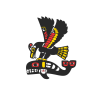Tanis Gower, Vancouver Sun, June 1, 2016
 Will we be sucked dry?
Will we be sucked dry?
This spring, officials in the Cowichan Valley on Vancouver Island had to make some hard decisions about water. Without an early intervention, the Cowichan River was at risk of drying up. An emergency decision was made to start holding back lake water, and by May 27 the river was already at low summer flows. With luck, a trickle will remain until the fall rains begin.
This is by no means an isolated problem: our record-breaking warm, dry spring is bringing summer conditions to many parts of B.C., and conflict between the different users of our dwindling freshwater resources is virtually guaranteed. Fish are “water users” too, and we can expect them to take another hard hit as water scarcity forces trade-offs between human uses and ecosystem health.
What is B.C. doing to meet the challenges of this new reality?
On Feb. 29, B.C.’s conservationists celebrated the arrival of the Water Sustainability Act, a new law whose name change alone — from the Water Act to the Water Sustainability Act — indicates a new era of water stewardship with protection for fish and ecosystems at the core. In particular, the act promised two major gains: regulation of groundwater, and a requirement to consider water for fish and ecosystems in licensing decisions.
It turns out that the devil is in the details. Since February, the celebratory mood has dampened with the discovery that existing, previously unregulated groundwater extraction might be grandfathered in without consideration of its environmental impacts. Moreover, First Nations are expressing concerns about how well their pre-existing and constitutionally protected rights are being respected under the new law.
As reported in a Vancouver Sun article on April 5, the initial regulations had a “bizarre loophole” which excluded the possibility of any review of nature’s water needs in the 20,000 or so existing commercial and industrial groundwater licenses being brought into the system. The subsequent public outcry prompted the provincial government to fix this oversight. But a larger problem still exists: Government managers can decide on a case-by-case basis whether to consider nature’s water needs and real-time climate change impacts when they review current groundwater uses. There is real potential to lock in existing, unsustainable levels of groundwater use, with harmful consequences for connected lakes, rivers, and streams.
Existing groundwater users should not get a “free pass”. British Columbians deserve the full confidence that the government will do proper reviews of the water needs of fish and nature before industrial and commercial groundwater uses get locked into the system for the long term. The current situation clearly demonstrates that B.C. needs a binding regulation — not just the current policy guidance — to explicitly and transparently establish how decision-makers must account for fish and other aquatic needs. While this was initially promised, decision-makers now appear to prefer the opaque, optional nature of policy guidance, rather than codifying the rules in a transparent regulation.
If B.C. is smart about implementing the Water Sustainability Act to its fullest potential, we can avoid the dire drought situations experienced in California and Australia. The new Act is meant to prevent, even fix, the chronic overuse of water from some rivers and aquifers. Groundwater extraction is a serious issue in many areas of the province, as its overuse can mean that rivers stop flowing in the summertime. This is not just a conservation issue: lack of water may also mean that future development will be severely curtailed.
A fully implemented Water Sustainability Act gives B.C. the tools to avoid crisis scenarios, while also serving as a leading example of aquatic ecosystem protection. We need to seize this rare opportunity to make sure we have enough water for the future — for nature, and for ourselves. Let’s call on our provincial representatives to make this new law the best it can be.
Tanis Gower is a registered professional biologist who works on projects for Watershed Watch Salmon Society.
 Email
Email



